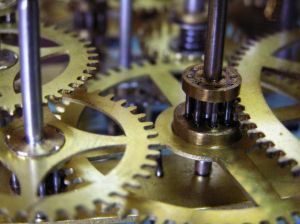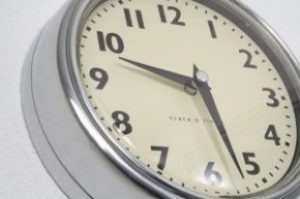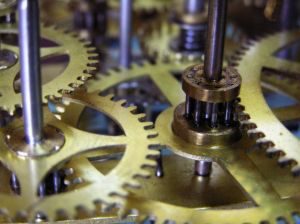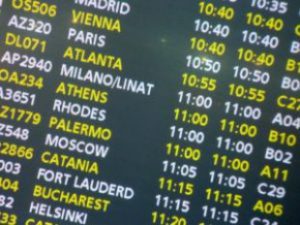
February 22, 2018, by Ross Wilson
Keeping time and interdisciplinary work with Liberal Arts
In Liberal Arts we want to encourage interdisciplinary thinking. As students attend lectures from across other departments, develop their own ideas, discover new methods and theories, we always come together as Liberal Arts scholars to discuss how we can draw these connections together. For example, we can do this by exploring the theme of time.

Kitchen clock – keeping time
Time as a subject of study might seem fairly abstract but it’s key for being able to demonstrate the complexity of the world and the range of tools we have to examine it. As part of our work in this module, we identify, examine and analyse the way in which we use time to make sense of the universe, our world, our lives and to understand the past, present and future.
Concepts of time are not innate, human societies have created their own understanding of time and it reflects social, cultural, political and economic values. For example, consider how we speak of ‘worktime’, ‘leisure time’ or ‘passing the time’, these are frameworks that we place upon our world to make sense of our activities and ideals.
We explore the scientific, philosophical and artistic approaches to examining time as a means of engaging with ideas about scale, measurement and process. From the astrophysical time that is used to examine the development of galaxies, to the geological movements that have shaped the Earth, we will assess how time is ‘invented’ and used to explore issues at a grand level.
Using the ideas about chronology and change from historians, sociologists and political scientists, we will understand how societies across the world have created structures of time to comprehend and interpret. Using philosophy, art and psychology, we will examine how time can be represented and experienced by individuals and communities.

Cogs and the mechanics of time keeping
Finally, we will use literature and contributions from the natural sciences and wider humanities to explore future time, how the world might develop and change over the next few decades, centuries and millennia.
Through this work, we will be able to think in terms of scale, measurement and process. One of the key skills within research and analysis is being able to conceive of issues in the long term, in the immediate context and to plan into the future. This is how we can learn to analyse and solve problems. Too often we seek to address issues in the at the present moment without thinking about the processes that shaped this context or the impact of our decisions in the future.
As we utilise the range of ideas that the arts, humanities and sciences has for understanding and examining time, we also develop the key skills required in any future career; planning, management and analysis.

Timetables – the way we have organised time in the modern era
Through this assessment we will be able to identify the methods and the value of using Liberal Arts and apply these techniques to real-world situations. Liberal Arts is not just an intellectual pursuit that encompasses a range of discipline but a means of thinking about the world and developing solutions in a critical and informed manner.
No comments yet, fill out a comment to be the first

Leave a Reply